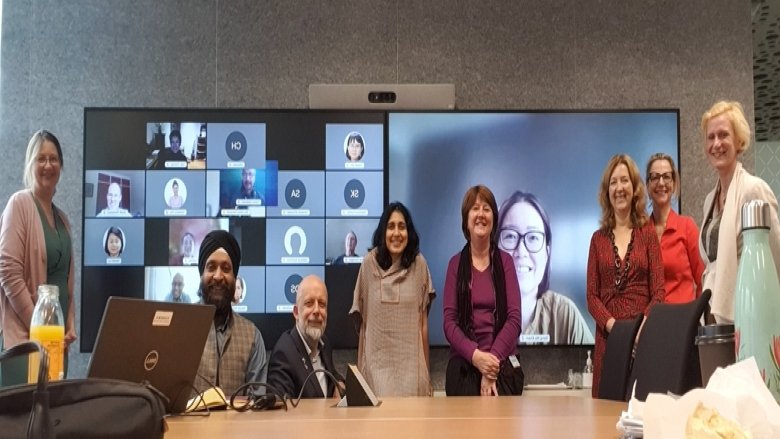Exploring how to address gender inequality while promoting progress towards universal health coverage was the focus of an Advance Universal Health Coverage (Advance UHC) trust fund workshop for East Asia and Pacific (EAP) countries in April. The event was a valuable opportunity for participants to reflect on issues that they have encountered working on projects across the region, and to propose strategies for resolving them.
The one-day event was co-hosted by the Australian Department of Foreign Affairs and Trade and the World Bank which are working together to advance UHC was well as the rights of women and girls in EAP. Participants at the workshop included 42 gender experts and managers from the two agencies, their country counterparts, and team members working in Cambodia, Lao PDR, Myanmar, Vietnam, Indonesia, Papua New Guinea and the Solomon Islands.
Thematic areas covered
The workshop went over three thematic areas—building evidence to identify gender gaps through assessments and analysis; strengthening health information systems with gender perspectives; and integrating gender considerations in quality monitoring, performance-based financing, and COVID-19 response.
Country teams, at various stages of gender assessment and implementation of recommendations, relayed the progress, lessons learned and constraints of their activities. Government counterparts also provided valuable policy and institutional perspectives on the unique challenges facing gender equality in the health sector. The workshop identified strategies for moving forward including:
· Use COVID-19 as an opportunity to spotlight gender gaps in access to health services, in the health workforce, and in the overall economic recovery. Attention should be drawn to the pandemic’s devastating consequences for women and girls who bear the greatest burden of the disruption to health systems—a 25% drop in coverage of essential services since COVID-19 struck. Political interest should also be leveraged to improve conditions for women in the health workforce. Since women constitute the majority of health workers, access to healthcare cannot occur without them. Empowering women and promoting gender equality is thus crucial to the overall economic recovery.
· The winning formula for advancing gender equality is to assess gender gaps to come up with recommendations specific to the country, establish strong collaboration and dialogue on gender with development partners and government counterparts, and integrate gender considerations in the project design for sufficient resources and attention.
· Health information is a critical entry point for measuring the magnitude of gender gap issues and identifying the key priorities of the country. Disaggregated data (by sex/age/location) is important information for governments and partners to have when planning how to make the delivery of health services more equitable.
· Both bottom up and top-down approaches are required to move the needle on gender. Find key champions at the top to shape good gender sensitive policies. At the same time, support frontline workers who implement activities, and train mid-level management to address identified gender gaps. Or as World Bank participant Laura Rawlings put it: “Speak to the heart, speak to the head and work from the bottom up and from the top down.”
